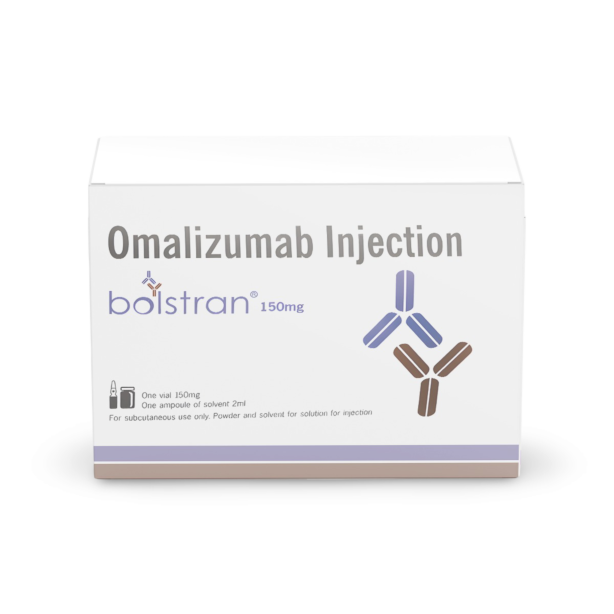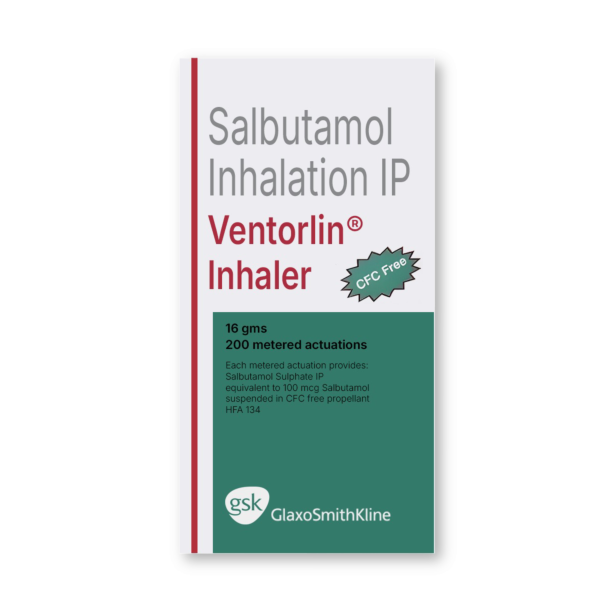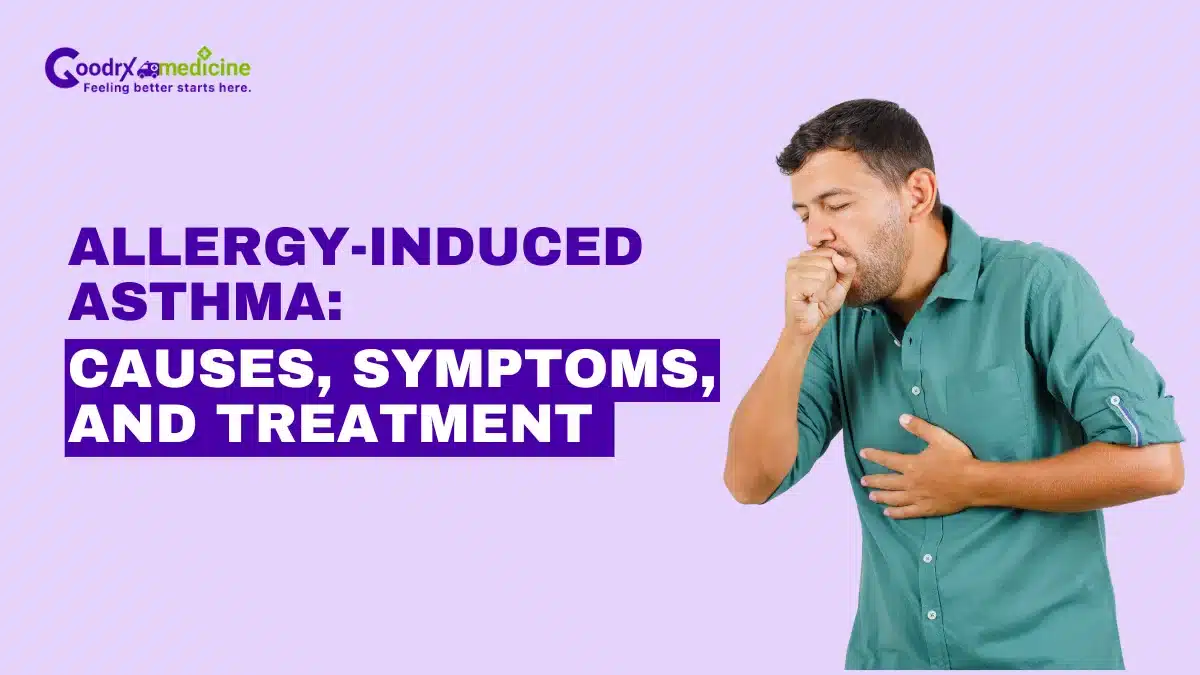If you often find yourself wheezing, coughing, or feeling breathless after being around dust, pollen, or pet dander, you might be dealing with Allergy-Induced Asthma. This condition is more common than many people think.
While Asthma and allergies can exist separately, in many individuals, they are closely connected. Understanding this link is the first step to managing your symptoms and living more comfortably.
Whether you’ve just been diagnosed or are trying to help someone you love, in this article, we will read what Allergy-Induced Asthma is, what causes it, how to recognize the symptoms, and how you can treat and manage it.
What is Allergy-Induced Asthma?
Allergy-Induced Asthma or Allergic Asthma, is a type of Asthma triggered by allergens. An allergen is a substance that leads to an allergic reaction. Common allergens include:
- Pollen from trees, grass, and weeds
- Pet dander (tiny flakes of skin)
- Dust mites
- Mold spores
- Cockroach droppings
Genetics and environment play a big role in developing allergic Asthma. If allergies or Asthma run in your family, you are more likely to develop this condition. Having hay fever (Allergic Rhinitis) also increases your risk. In fact, many people with allergic Asthma also suffer from nasal allergies.
When someone with allergic Asthma is exposed to an allergen, their immune system reacts strongly. This causes the airways in the lungs to become inflamed, narrow, and filled with mucus. As a result, it becomes harder to breathe, and Asthma symptoms begin to appear.
Save up to 90% on your medicine bills

Aerocort Inhaler 50 mcg + 50 mcg

Bolstran 150 mg Injection

Ventorlin CFC Free Inhaler 100 mcg/18 mg

Asthalin HFA Inhaler 100 mcg
What happens during an allergic Asthma attack?
During an Asthma attack caused by allergies, the following changes occur in the body:
- The immune system identifies a harmless substance (like pollen) as dangerous by mistake.
- It releases chemicals like histamine to fight off the allergen.
- These chemicals make the muscles around the airways to tighten.
- The lining of the airways swells, and excess mucus is produced.
- The result: wheezing, coughing, shortness of breath, and chest tightness.
Allergy-Induced Asthma symptoms
The symptoms of Allergic Asthma can vary in severity. Some people may have mild symptoms, while others may experience severe breathing difficulty. Common signs include:
- Coughing (especially at night or early morning)
- Wheezing (a whistling sound when breathing)
- Shortness of breath
- Chest tightness or pain
- Trouble sleeping due to breathing issues
- Symptoms worsen during allergy season or when near allergens
In some cases, symptoms can be life-threatening. If someone finds it extremely hard to breathe or if their lips or face turn blue, immediate medical attention is needed.
Diagnosis
If you suspect you have Allergy-Induced Asthma, a doctor can perform specific tests to confirm the diagnosis. These may include:
- Lung function tests: These are tests like spirometry, which measure how much air you can breathe in and out.
- Allergy testing: These are some skin or blood tests to identify allergens that trigger reactions.
- Peak flow monitoring: tracking how well your lungs are working over time.
Once diagnosed, your doctor can help you build a treatment plan tailored to your triggers and symptoms.
Allergy-Induced Asthma treatment options
Managing Allergic Asthma involves two main steps: controlling Asthma symptoms and reducing exposure to allergens. The treatment options are:
Allergy-Induced Asthma medications: There are two categories of medicines for Asthma treatment:
- Quick-relief (rescue) medicines: These are used during an Asthma attack, like Albuterol (inhaler), which works by relaxing the muscles around the airways.
- Long-term control medicines: These are taken daily to prevent symptoms, like inhaled corticosteroids, leukotriene modifiers that help reduce airway inflammation over time.
Allergy medicines: If allergies are the main trigger, your doctor might also recommend:
- Antihistamines to reduce allergic reactions.
- Nasal sprays to relieve nasal congestion.
- Allergy shots (immunotherapy) to build long-term tolerance to allergens.
Lifestyle and environmental control: In addition to Asthma medicines, you can take steps at home to reduce allergen exposure:
- Keep windows closed during high pollen days.
- Use an air purifier with a HEPA filter.
- Vacuum everyday using a vacuum with a HEPA filter.
- Wash bedding in hot water once a week.
- Keep pets out of the bedroom.
- Fix leaks and reduce indoor humidity to prevent mold.
Complications
If not treated properly, allergic Asthma can lead to serious health problems, such as:
- Frequent Asthma attacks
- Missed school or work days
- Lung infections
- Poor sleep and reduced quality of life
In severe cases, untreated Asthma can be life-threatening. That’s why early diagnosis and consistent treatment are so important.
When to see a doctor
You should consult a doctor if:
- You have frequent coughing or wheezing.
- Your Asthma symptoms are getting worse.
- You need to use your rescue inhaler more than twice a week.
- Your symptoms wake you up at night.
- You avoid daily activities due to breathing problems.
Conclusion
Allergy-Induced Asthma is more than just a seasonal inconvenience it is a chronic respiratory condition that can significantly affect daily life if not managed properly. Triggered due to allergens such as pollen, pet dander, dust mites, and mold, this type of Asthma involves a complex interaction between your immune system and the environment around you.
When left untreated, it can lead to frequent Asthma attacks, poor sleep, missed work or school, and even life-threatening situations in severe cases. However, with the right awareness, tools, and support, Allergic Asthma is very manageable.
A proper diagnosis from a doctor is the first step. Once you identify your specific triggers through allergy and lung function tests, you can take action to reduce your exposure to them.

Frequently Asked Questions
What is the difference between regular Asthma and Allergy-Induced Asthma?
While both types affect the lungs and breathing, Allergic Asthma is triggered when you are exposed to allergens. In contrast, non-allergic Asthma may be caused by cold air, exercise, smoke, strong smells, or stress. It is possible to have both types of Asthma at once, which is known as mixed Asthma.
How long does Allergy-Induced Asthma last?
Allergy-Induced Asthma is a chronic condition that doesn’t go away completely. Its severity and frequency can vary over time, depending on allergen exposure and treatment. With proper management—including medications and lifestyle changes—symptoms can be controlled, allowing individuals to live comfortably for years or even a lifetime.
Can babies get Allergy-Induced Asthma?
Yes, babies can develop Allergic Asthma, especially if there is a family history of Asthma or allergies. Common triggers include dust mites, pet dander, and mold. Diagnosing Asthma in infants can be challenging, but early medical intervention and allergen control can help manage symptoms and improve breathing over time.
Is Allergy-Induced Asthma contagious?
No, Allergic Asthma is not contagious. You cannot catch it from someone else. It is caused by a person’s immune system overreacting to allergens like pollen or pet dander. Genetics and environmental factors also affect its development, not viruses, bacteria, or contact with affected individuals.
When referencing outside resources, GoodrxMedicine always provides full citations. To learn more about the measures we use to maintain the quality of our content, please review our Content Information Policy.











